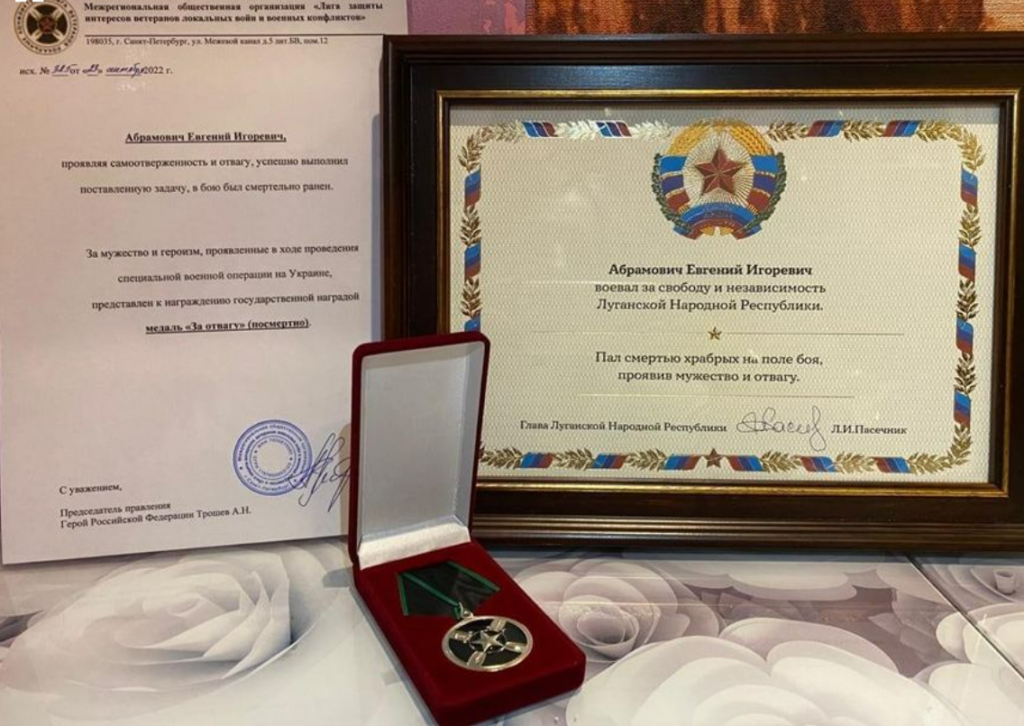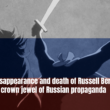Just in October Putin’s warlord Yevgeny Progozhin, owner of the private military company Wagner was promoting the participation in the war against Ukraine to prisoners across Russia. Now, hundreds of hired criminals were killed on the frontlines. Many mercenaries, the luckiest ones, were captured alive by the Ukrainian army.
Investigative journalists of The Insider analyzed the available footage and posts on social media and were able to identify those Russian prisoners, deceived by the state propaganda and Prigozhin, and killed in Putin’s war. More than 200 letters from Andriy Troshev offering sympathy to the families of Pryzhyn soldiers hired in Russian colonies were discovered and verified by the Ukrainian Center for the Study and Counteraction to Hybrid Threats.
From Russian prisons to war
Tochev is one of the top members of PMC Wagner, an illegal armed organization made up of mercenaries. By the middle of October, more than 500 prisoners had died overall. The letters come with a posthumous award, “For Courage,” and the documents (which relatives posted on social media sites) are correctly numbered, allowing us to estimate how many letters there are. Families of the deceased attest to the fact that their sons died in Ukraine while fighting after they were recruited into the colonies.
Condolence letters for the relatives of the deceased
It is known from indirect evidence (based on document numbering) that in less than a month (between September 18 and October 13), Troshev delivered at least 224 condolence letters. By the middle of October, at least 458 POWs recruited by Prigozhin had died in Ukraine.
By the beginning of November, there will undoubtedly be more than 500 of these messages posted on social media by relatives of prisoners; however, the exact number is unknown because none of the relatives have shared a photo of the awards since mid-October, which would have revealed the serial number (probably, relatives were warned that it is forbidden to post pictures of award documents).
Here is an example of one of these letters sent to Yevhen Abramovich’s family members. The serial number (No 325) and the document’s date are 23.09.2022.

Abramovich’s sister, Zinaida Tarelka, said that her brother passed away in Ukraine: “He once made a video call to me from there. I left the PMC without saying much to them. Even his location was left unknown. He assured them that there was nothing to worry about. They offered their help after receiving a pardon. It is true on paper. He said that no paper of pardon had been issued. I have seen numerous headlines stating that people have been searching for kids, husbands, and brothers for three months. Thank you for burying them.”
The sister did not say under what accusation Abramovich served his term. For instance, take a look at this letter from October 12 addressed to the family of Evgeny Tsarkov, who was found guilty of theft.
Letters help to identify how many Russian criminals died
An identical letter, number 454, was delivered to the heirs of the murdered Yevgeny Brisin on October 13.
It appears that on October 12 and 13, the PMC leadership signed at least 90 letters expressing condolences for the death of their military personnel. Ihor Huskov, a retired SBU major general who works at the Center for Countering Hybrid Threats, describes it like this:
“The death date is not the same as the date of the letter. After a soldier dies, identification is frequently needed (often retrieved from the battlefield a few weeks later). Therefore, the notes declare that he passed away and would be compensated. Typically, the letter’s date is 7–10 days later than the death date “.
Guskov asserts that all 90 of these letters refer to September and October. However, the Center only has one record confirming a recruit’s death before September, despite reports about Russian captives arriving on Ukrainian territory as early as August.
Among the letters in the general public, the highest serial number discovered is 458. On October 13, the following letter holding this number was sent to Vladislav Ivanushkin’s family:

So, by the middle of October, the PMC had informed the family members of the death of 458 criminals. At the end of September, Prygozhyn PMC reportedly recruited almost 6,000 inmates, and at least 2,036 were removed, according to estimates from “Important Stories”.
Accordingly, by October, the Ukrainian Armed Forces had killed nearly a fourth of the Russian criminals who had moved to the front.
Special awards for prisoners
The Center claims that others can recognize letters with numbers regarding ex-offenders deaths because they are followed by a special medal (on a green ribbon) and a letter from Leonid Pasichnyk, the head of the “LPR.” Guskov explains that common mercenaries also obtain other rewards.
“Since 2022, these awards have only been given to mercenaries who are zeks. Each mercenary has received recognition for a certain campaign (it is like a sign of “friend or foe”). They typically enter the public media only after passing away. There were never such prizes before September 2022.
If everyone had received the letters, they would have been confronted with the usual posthumous black crosses given to common Wagnerians. At least one example came to light. But no. I now have folders for at least 18 non-zek regular mercenaries who died while storming Popasna and Bakhmut and received black crosses. No letter or “certificate” from Pasichnyk exists.
I believe that these letters and green awards started to appear on social media more frequently for psychological reasons: after a relative passes away, family members are eager to publish these letters and awards and demonstrate them, as if to affirm that their husband (son, brother) is not a bastard but a hero.”
The Center estimates that between 800 and 1,000 Wagner PMC mercenaries have been killed in Ukraine, including prisoners and regular mercenaries.
Сriminals who did horrible things are now proclaimed heroes
Some of the names of the deceased captives whose involvement in the war (and deaths) have been verified using publicly available information published by The Insider. Those arrested for murder and those found guilty of theft and drug trafficking are included in this group. Some of the deceased’s family members acknowledged that they were actually in PMCs, serving time in prison camps, and just passing away in Ukraine.
1) Roman Suslov, 13.06.1982, Pervomaisky village, Falensky district, Kirov region. What his wife said is shown in:
“We have a son together, and my husband Roman Suslov indeed passed away in Ukraine. For the murder of his friend, he spent nine years in prison. The friend mentioned that his father wasn’t like that while they were drinking. He just had a year left on his term. Nearly unprepared, they were thrust into the front. He spent a lot of time working with the police, but by this time, his skills were lost.”

Roman Suslov, 40, worked in police forces before going to prison; he was arrested in 2014. His wife claims that recruiters from Wagner PMC made the prisoner an amnesty promise. The family, however, received no documentation. Suslov himself assumed he was volunteering to go to the front.
2) Yevgeny Abramovich. 25.12.1988. Yaroslavl district. His sister refused to reveal the charge for which her brother was found guilty. In the end, he received a 9-year prison term for murder in 2017.
3) Vasyl Valchuk 3 25.03.1995. Ryazan. In Ryazan, 23-year-old Valchuk was given a 9-year prison term for causing severe bodily harm that resulted in a person’s death. In March 2018, he got into a fight with his top-floor roommate, a Federal Penitentiary Service Academy cadet who was having a birthday party and making music too loudly at night. The disagreement turned into a murder as a result. After the student died from his wounds, the student died from his injuries, and Valchuk moved to the colony.

4) Ivan Vakhonin, 25 March 1992. Ivanovo area in Moscow. Before being sent to prison, Vakhonin was a Young Guard activist, a member of the LDPR party, and even campaigned for municipal deputies in the Ivanovo area. He received a 13-year prison term in 2019 for trafficking salts and spices as drugs.
5) Yevhen Borisov. Alekseevskoye locality, Republic of Tatarstan. 27.10.1979.
6) Mikhail Bykov. Yaroslavl region, 16.01.1983. He was given a 4-year prison term in 2022 for causing severe bodily harm.
7) Dmitry Anokhin. In Velykyi Novgorod. He was found guilty of murder in 2015.
8) Alexey Brisin. Kolomyia, Moscow region, June 30, 1994. He was found guilty of theft in 2015 and of murder in 2021.
9) Andriy Gaponov. September 1, 1983. Pidhirne locality, Vyborg district, and Leningrad region. He was being punished for theft under the article.
10) Kirill Zhavoronkov. August 19, 1994. Region of Moscow, settlement of Mytishchi. According to the newspaper, he received a prison term for cocaine trafficking.
11) Vladislav Ivanushkin. 17.09.2001. Aleksin, in the Tula region. He received a 13-year prison term in 2021 for narcotics trafficking.
12) Sergey Kireev. Volgodonsk, Rostov region, 09.12.1976 He served an eight-year term for cocaine trafficking.
13) Vladimir Matveychuk. 03.12.1989. Region of Rostov. He was serving a term for drug possession and theft under the article.

Prigozhin, who had served time for theft and engaging youngsters in criminal activity, and his recruiters publicly warned that 80% of those who participated in the war would not return. Therefore the high loss rate among the criminals recruited to the Russian army can hardly be described as a surprise.








